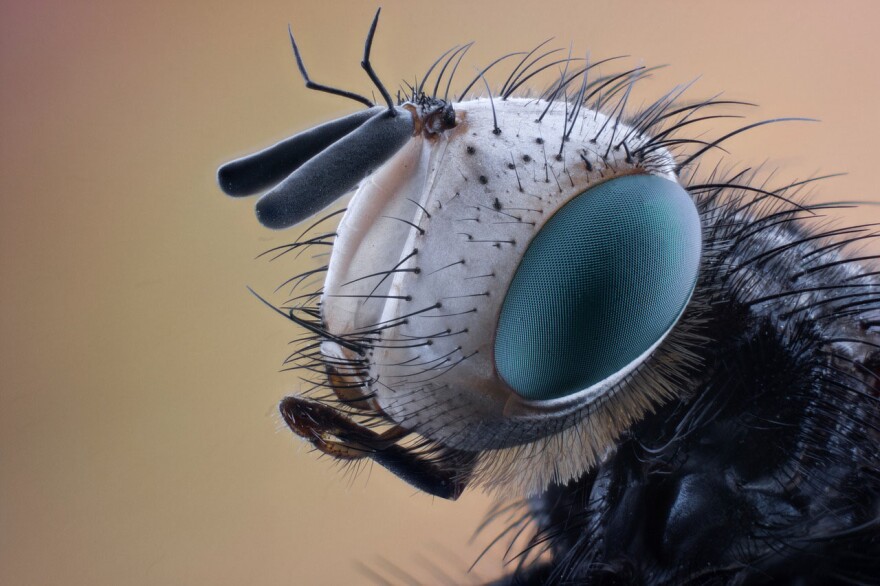June is National Pest Control Month, but July and August are National Pest Out-of-Control Months, when we live in a state of siege. There are screens on all the doors and windows, plus electronic zappers, citron candles and closets full of chemical sprays. But the bugs love our hospitality so much that nothing will keep them away.
When I was growing up, the most formidable insect killer in the house was a fly swatter. Then DDT came along, and we sprayed it indiscriminately on anything that moved including my poor old grandmother. She preferred bugs to DDT, and swore that our spraying would be the death of her. When she passed on, a few days short of her 100th birthday, we went back to the old fly swatter. Grandmother was always right.
The war on bugs has become more sophisticated since those days. Every summer, displays of deadly chemicals appear in the local supermarket. The containers read like publicity from an arms dealers' convention: KILL, STOP, DESTROY, TERMINATE. Exterminators roam the suburbs in unmarked vans, loaded with who knows what toxic cargo. The battle never ends.
There are more than 700,000 species of insects, and most of them stop by our house for their summer vacations. Ants, roaches, silverfish, beetles, flies, hornets, wasps, earwigs, centipedes, moths and fleas all converge on our little half acre. They are not impressed by our sprays and foggers, baits and powders, and there are a lot more of them than there are of us.
Insects are survivors. They adapt like viruses to anything we can throw at them, and even the most potent chemicals are getting less effective. Just as we humans have dished ourselves by overdosing on antibiotics, we have toughened up the insect population with decades of toxic doses, which were almost, but not quite, 100% effective. As any scientist will tell you, it's the "not quite" that matters. We may even be breeding a race of super bugs, like those in the old sci-fi movies.
My perspective on this annual invasion was somewhat modified by, of all things, an old French film called “Microcosmos.” This astonishing production is a microscopically magnified portrait of insects in a meadow on a summer’s day, with a sophisticated musical score.
The insects are astonishing, not just the familiar ants and bees but creatures from another world. Their activities are amazing too. I watched a beetle re-enacting the Myth of Sisyphus, trying to push a ball of dirt up a hill. But it always rolled down again until the beetle, smarter than his human model, found ways to prop it with stones and sticks, and so push all the way to the top. Is that intelligence? I think so.
I can’t say that this movie reconciled me completely to the intimate company of so many small visitors around the house. But it was a reminder of the astonishingly beautiful alien world that exists under our feet and over our heads.
They are not so unlike us. They are just following the imperative of survival that applies to all living things, including us. Like the human survivalists the insects have their bunkers and their food stores, and they are in it for the long haul — 200 million years so far. If this is a contest for the planet, they may be on the winning side.
Copyright: David Bouchier


